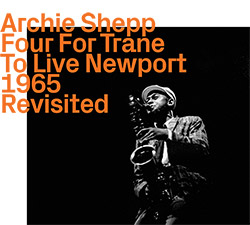
Influenced by and working with John Coltrane, saxophonist and composer Archie Shepp paid tribute to 'Trane with his 1965 Impulse! album Four for Trane, here remastered and joined with tracks from the live album John Coltrane/Archie Shepp: New Thing At Newport, accompanied on each by acclaimed free jazz players including Roswell Rudd, John Tchicai, Reggie Workman, Barre Phillips, Joe Chambers, &c.
In Stock
Quantity in Basket: None
Log In to use our Wish List
Shipping Weight: 3.00 units
EU & UK Customers:
Discogs.com can handle your VAT payments
So please order through Discogs
Sample The Album:
Archie Shepp-tenor saxophone
John Tchicai-alto saxophone
Roswell Rudd-trombine
Alan Shorter-fluegelhorn
Reggie Workman-double bass
Charles Moffett-drums
Bobby Hutcherson-vibraphone
Barre Phillips-double bass
Joe Chambers-drums
Click an artist name above to see in-stock items for that artist.
UPC: 752156115021
Label: ezz-thetics by Hat Hut Records Ltd
Catalog ID: ezz-thetics 1150
Squidco Product Code: 33082
Format: CD
Condition: New
Released: 2023
Country: Switzerland
Packaging: Cardboard Gatefold
Tracks 1-5 recorded at the Van Gelder Studio, in Hackensack, New Jersey, on August 10th, 1964.
Tracks 6-10 recorded live at the Newport Jazz Festival, in Newport, Rhode Island, on July 2nd, 1965.
John Coltrane / Archie Shepp - New Thing At Newport originally released in 1966 as a vinyl LP on the Impulse! label with catalog code A 94. Archie Shepp Four for Trane original released in 1965 as a vinyl LP on the Impulse! label with catalog code AS-71.
"The twelve months between August 1964 and August 1965 were particularly creative and consequential regarding the documentation of jazz's avant-garde. Among other adventurous and soon-to-be-proven-influential sessions, Blue Note recorded Wayne Shorter, Tony Williams, Sam Rivers, Andrew Hill, and Bobby Hutcherson; ESP debuted Pharoah Sanders, rediscovered Sun Ra, continued their advocacy of Albert Ayler, and introduced the New York Art Quartet (with Roswell Rudd and John Tchicai, an outgrowth of the New York Contemporary 5); while Impulse sustained John Coltrane through A Love Supreme and Ascension, and, most relevant to the issue at hand, brought Archie Shepp into the studio for the first album completely under his own control.
On second thought, perhaps the word "completely" is a slight overstatement. That is to say, the initial concept behind Four For Trane - a younger, lesser-known, first-time-on-his-own saxophonist paying homage to the leader of the music's progressive wing with a program of his compositions - was likely the brainstorm of label producer Bob Thiele. Not that Shepp was liable to object; though he had served his apprenticeship with Cecil Taylor and the New York Contemporary 5 from 1960- 64, he considered Coltrane to be his mentor. They played informally often in Philadelphia (though both were born elsewhere, and Coltrane was eleven years older, they were part of the city's vital music scene as early as the 1950s), and Coltrane frequently allowed Shepp to sit in on club gigs for years after, as well as including him on A Love Supreme's alternate takes and Ascension. And it was at Coltrane's suggestion that Thiele signed Shepp to an Impulse contract.
Nevertheless, it is all to Shepp's credit that Four For Trane became one of the classic, iconic albums of the post-bop era. The explanation is threefold. First, the material. Rather than follow Coltrane's lead into the most extreme of his free-blowing anthems, Shepp selected three songs from the Giant Steps album, and one from Coltrane Plays The Blues (although "Cousin Mary," from the former release, is also a twelve-bar blues). This is significant because it illuminates the two sides of Shepp's conceptual perspective - an urgency to affirmatively affect the conditions of racial respect and equality in society through radical artistic (music and the written word) endeavors, counterbalanced by a devotion to the traditional expressions (especially the blues and gospel roots learned from his parents) of the African American community.
Second, the remarkable arrangements of the material. Expanding these quartet pieces for a sextet, Shepp's vision (and Roswell Rudd's reorganization of "Naima") transforms their once-straightforward designs into dramatic tone poems, adding introductions, riffs, contrapuntal textures, and instrumental colors. These charts (and those of Shepp's subsequent albums such as Fire Music and Mama Too Tight) became the blueprint for the ambitious mid-sized groups of David Murray and Henry Threadgill in the 1980s. Third, the ensemble. Each player contributes details emphatic and subtle as called for, the whole being greater than the individual parts. But Shepp's explosive solos stand out - they inaugurate a powerful, personal style (with his entrance on "Syeeda's Song Flute" as an example) - wildly chromatic, intensely lyrical, abstractly shaped, and vocalized with tonal effects.
Still and all, it is the inclusion of Shepp's composition "Rufus (swung, his face at last to the wind, then his neck snapped)" that provides the symbolic link connecting his socio-musical attitudes throughout his early career. Shepp recorded "Rufus" four times, twice with the NYC5 on 23 August 1963 (one version without Don Cherry), again on Four For Trane, and at the live performance at Newport in 1965. Though the title describes the horrific events of a lynching, the music is not specifically programmatic, while alternating calm and agitated statements.
Although limited to a quartet at Newport, probably due to economic reasons, Shepp concentrated on his own compositions, and their titles reveal a commitment to the 1960s civil rights movement, intensified by the assassination of Malcolm X six months earlier. "Gingerbread, Gingerbread Boy" (not to be confused with Jimmy Heath's "Gingerbread Boy") takes its title from a 19th century folk tale concerning a figure running to save its life, but doomed to defeat. "Call Me By My Rightful Name" was the title of a 1961 off-Broadway play by Michael Shurtleff involving an interracial love triangle, but also implies the loss of identity during slavery. "Scag" is Shepp's agonizing poem confronting drug abuse in the ghetto. And "Le Matin des Noire," the morning of the blacks, as related by Nat Hentoff in the album's original liner notes, is not only the promise of a new day of freedom, but also the mourning that accompanies the struggle to achieve that goal. The music at Newport, though compacted from his larger ensemble, surveys emotional states and musical qualities ranging from tenderness to turbulence, stretches dynamics and instrumental timbres to extremes, and questions the boundaries of intent and impact.
Metaphors of freedom, beauty in the face of conflict, and control on the edge of chaos, energize these distinctive recordings. The eloquence, and complexity, of these tones and moods, occasioned by Archie Shepp's artistry and social conscience, make this music all the more compelling, then and now."-Art Lange, Chicago, January 2023

The Squid's Ear!
Artist Biographies
• Show Bio for Archie Shepp "Archie Shepp (born May 24, 1937) is an American jazz saxophonist. Shepp was born in Fort Lauderdale, Florida, but raised in Philadelphia, Pennsylvania. He studied piano, clarinet, and alto saxophone before focusing on tenor saxophone. He occasionally plays soprano saxophone and piano. He studied drama at Goddard College from 1955 to 1959. He played in a Latin jazz band for a short time before joining the band of avant-garde pianist Cecil Taylor. Shepp's first recording under his own name, Archie Shepp - Bill Dixon Quartet, was released on Savoy Records in 1962 and featured a composition by Ornette Coleman. Along with John Tchicai and Don Cherry, he was a member of the New York Contemporary Five. John Coltrane's admiration led to recordings for Impulse! Records, the first of which was Four for Trane in 1964, an album of mainly Coltrane compositions on which he was joined by trombonist Roswell Rudd, bassist Reggie Workman and alto player John Tchicai. Shepp participated in the sessions for Coltrane's A Love Supreme in late 1964, but none of the takes he participated in was included on the final LP release (they were made available for the first time on a 2002 reissue). However, Shepp, along with Tchicai and others from the Four for Trane sessions, then recorded Ascension with Coltrane in 1965, and his place alongside Coltrane at the forefront of the avant-garde jazz scene was epitomized when the pair split a record (the first side a Coltrane set, the second a Shepp set) entitled New Thing at Newport released in late 1965.File:Archie Shepp interview 1978.webmPlay media(video) Interview from 1978, Archie Shepp discusses jazz trends, poverty, politics, civil rights, culture and society. In 1965, Shepp released Fire Music, which included the first signs of his developing political consciousness and his increasingly Afrocentric orientation. The album took its title from a ceremonial African music tradition and included a reading of an elegy for Malcolm X. Shepp's 1967 The Magic of Ju-Ju also took its name from African musical traditions, and the music was strongly rooted in African music, featuring an African percussion ensemble. At this time, many African-American jazzmen were increasingly influenced by various continental African cultural and musical traditions; along with Pharoah Sanders, Shepp was at the forefront of this movement. The Magic of Ju-Ju defined Shepp's sound for the next few years: freeform avant-garde saxophone lines coupled with rhythms and cultural concepts from Africa. Shepp was invited to perform in Algiers for the 1969 Pan-African Cultural Festival of the Organization for African Unity, along with Dave Burrell, Sunny Murray, and Clifford Thornton. This ensemble then recorded several sessions in Paris at the BYG Actuel studios. Shepp continued to experiment into the new decade, at various times including harmonica players and spoken word poets in his ensembles. With 1972's Attica Blues and The Cry of My People, he spoke out for civil rights; the former album was a response to the Attica Prison riots. Shepp also writes for theater; his works include The Communist (1965) and Lady Day: A Musical Tragedy (1972). Both were produced by Robert Kalfin at the Chelsea Theater Center. In 1971, Shepp was recruited to the University of Massachusetts Amherst by Randolph Bromery, beginning a 30-year career as a professor of music. Shepp's first two courses were entitled "Revolutionary Concepts in African-American Music" and "Black Musician in the Theater". Shepp was also a professor of African-American Studies at SUNY in Buffalo, New York. In the late 1970s and beyond, Shepp's career went between various old territories and various new ones. He continued to explore African music, while also recording blues, ballads, spirituals (on the 1977 album Goin' Home with Horace Parlan) and tributes to more traditional jazz figures such as Charlie Parker and Sidney Bechet, while at other times dabbling in R&B, and recording with various European artists including Jasper van't Hof, Tchangodei and Dresch Mih‡ly. Shepp is featured in the 1981 documentary film Imagine the Sound, in which he discusses and performs his music and poetry. Shepp also appears in Mystery, Mr. Ra, a 1984 French documentary about Sun Ra. The film also includes footage of Shepp playing with Sun Ra's Arkestra. Since the early 1990s, he has often played with the French trumpeter Eric Le Lann. In 1993, he worked with Michel Herr to create the original score for the film Just Friends. In 2002, Shepp appeared on the Red Hot Organization's tribute album to Fela Kuti, Red Hot and Riot. Shepp appeared on a track entitled "No Agreement" alongside Res, Tony Allen, Ray Lema, Baaba Maal, and Positive Black Soul. In 2004 Archie Shepp founded his own record label, Archieball, together with Monette Berthomier. The label is located in Paris, France, and includes collaborations with Jacques Coursil, Monica Passos, Bernard Lubat, and Frank Cassenti." ^ Hide Bio for Archie Shepp • Show Bio for John Tchicai "John Martin Tchicai (April 28, 1936 - October 8, 2012) was a Danish free jazz saxophonist and composer. After moving to New York City in 1963, Tchicai joined Archie Shepp's New York Contemporary Five and the New York Art Quartet. He played on John Coltrane's Ascension, and Albert Ayler's New York Eye and Ear Control, both influential free jazz recordings. Tchicai was born in Copenhagen, Denmark, to a Danish mother and a Congolese father. The family moved to Aarhus, where he studied violin in his youth, and in his mid-teens began playing clarinet and alto saxophone, focusing on the latter. By the late 1950s he was travelling around northern Europe, playing with many musicians. Following his work in New York, Tchicai returned to Denmark in 1966, and shortly thereafter focused most of his time on music education. He formed the small orchestra Cadentia Nova Danica with Danish and other European musicians; this group collaborated with Musica Elettronica Viva and performed in multi-media events. Tchicai was a founding member of Amsterdam's Instant Composers Pool in 1968, and in 1969 took part in the recording of John Lennon and Yoko Ono's Unfinished Music No.2: Life with the Lions. On August 30, 1975, Tchicai's appearance at the Willisau Jazz Festival was recorded and released later that year as Willi The Pig. On this record, he plays with Swiss pianist Irène Schweizer. Tchicai returned to a regular gigging and recording schedule in the late 1970s. In the early 1980s he switched to the tenor saxophone as his primary instrument. In 1990 he was awarded a lifetime grant from the Danish Ministry of Culture. Tchicai and his wife relocated to Davis, California, in 1991, where he led several ensembles. He was awarded a National Endowment for the Arts fellowship in 1997. He was a member of Henry Kaiser and Wadada Leo Smith's "Yo Miles" band, a loose aggregation of musicians exploring Miles Davis's electric period. Since 2001 he had been living near Perpignan in southern France. On June 11, 2012, he suffered a brain hemorrhage in an airport in Barcelona, Spain. He was recovering and had canceled all appearances when he died in a Perpignan hospital on October 8, 2012, aged 76." ^ Hide Bio for John Tchicai • Show Bio for Roswell Rudd "Roswell Hopkins Rudd, Jr. (born November 17, 1935) is an American jazz trombonist and composer. Although skilled in a variety of genres of jazz (including Dixieland, which he performed while in college) and other genres of music, he is known primarily for his work in free and avant-garde jazz. Since 1962 Rudd has worked extensively with saxophonist Archie Shepp. Rudd was born in Sharon, Connecticut. He attended the Hotchkiss School and graduated from Yale University, where he played with Eli's Chosen Six, a dixieland band of students that Rudd joined in the mid-'50s. The sextet played the boisterous trad jazz style of the day and recorded two albums, including one for Columbia Records. His collaborations with Cecil Taylor, Archie Shepp, John Tchicai, and Steve Lacy grew out of the lessons learned while playing rags and stomps for drunken college kids in Connecticut. Rudd later taught ethnomusicology at Bard College and the University of Maine. On and off for a period of three decades, he assisted Alan Lomax with his world music song style (Cantometrics) and Global Jukebox projects. In the 1960s, Rudd participated in free jazz recordings such as the New York Art Quartet; the soundtrack for the 1964 movie New York Eye and Ear Control; the album Communications by the Jazz Composer's Orchestra; and in collaborations with Don Cherry, Larry Coryell, Pharoah Sanders, and Gato Barbieri. Rudd has had lifelong friendships with saxophonists Archie Shepp and Steve Lacy and has performed and recorded the music of Thelonious Monk with Lacy. Rudd and his producer and partner Verna Gillis went to Mali in 2000 and 2001. His album MALIcool (2001), a cross-cultural collaboration with kora player Toumani Diabatˇ and other Malian musicians, represented the first time the trombone had been featured in a recording of Malian traditional music. In 2004, he brought his Trombone Shout Band to perform at the 4th Festival au Dˇsert in Essakane, Tombouctou Region, Mali. In 2005, he extended his reach further, recording an album with the Mongolian Buryat Band, a traditional music group of musicians from Mongolia and Buryatia, entitled Blue Mongol. Rudd conducts master classes and workshops both in the United States and around the world." ^ Hide Bio for Roswell Rudd • Show Bio for Alan Shorter "Alan Shorter (May 29, 1932 - April 5, 1988) was a free jazz trumpet and flugelhorn player, and the older brother of composer and saxophone player Wayne Shorter. Shorter was born in the Ironbound District in Newark, New Jersey. He started on alto saxophone, but switched to trumpet after graduating from high school. He attended Howard University but soon rebelled against the ultra-conservative atmosphere and dropped out. He later graduated from New York University. He played his first professional gigs with a local bebop big band called the Jackie Bland Band (other members included his brother Wayne, trombonist Grachan Moncur III, and pianist Walter Davis, Jr.). He was very much a bebop player in his early years, but soon gravitated towards free jazz, and with the exception of six months he spent in a US Army Band, continued to play in that style for the rest of his career. Shorter recorded two albums as a leader: Orgasm (1968) and Tes Esat (1971). Both were out of print for many years until re-issued by Verve Records in 2004 and 2005, respectively. He also recorded five albums with saxophonist Archie Shepp (1964-1970), including the classic Four for Trane (1964), two albums with Marion Brown (1965-1966), one album with Alan Silva (1970), and made an appearance on one of his brother's albums (The All Seeing Eye ). Several of these albums feature his unusual compositions, his most famous being "Mephistopheles". In the mid-1960s, Shorter moved to Europe, leading his own avant-garde gigs in Geneva and Paris. His style of free jazz sometimes proved to be too far-out for European audiences (his brother remembered that Shorter's gigs in Europe would often end with him responding to the crowd's boos by yelling, "You're not ready for me yet!"), but he generally found European audiences more receptive than those in the U.S. Eventually, he returned to the United States, where he taught briefly at Bennington College but otherwise faded into obscurity. He died of a ruptured aorta in Los Angeles, California in 1988, at age 56, shortly after becoming engaged to Ruth Ann Hancock, a cousin of Herbie Hancock. Shorter's playing is comparable to Don Cherry, but with a more aggressive, anarchic bent. His own albums feature his groups functioning as a unit, rather than focusing on his own virtuosity (or lack thereof). Reportedly, his musical style is much like he was personally: deep and intellectual, but intentionally strange (his childhood nickname was "Doc Strange")." ^ Hide Bio for Alan Shorter • Show Bio for Reggie Workman "Reginald "Reggie" Workman (born June 26, 1937 in Philadelphia, Pennsylvania) is an American avant-garde jazz and hard bop double bassist, recognized for his work with both John Coltrane and Art Blakey. Workman was a member of jazz groups led by Gigi Gryce, Roy Haynes, Wayne Shorter and Red Garland. In 1961, Workman joined the John Coltrane Quartet, replacing Steve Davis. He was present for the saxophonist's Live at the Village Vanguard sessions, and also recorded with a second bassist (Art Davis) on the 1961 album, Olˇ Coltrane. After a European tour, Workman left Coltrane's group at the end of the year. Workman also played with James Moody, Art Blakey's Jazz Messengers, Yusef Lateef, Pharoah Sanders, Herbie Mann and Thelonious Monk. He has recorded with Archie Shepp, Lee Morgan and David Murray. He is currently a professor at The New School for Jazz and Contemporary Music in New York City, and is a member of the group, Trio 3, with Oliver Lake and Andrew Cyrille." ^ Hide Bio for Reggie Workman • Show Bio for Charles Moffett "Charles Moffett (September 6, 1929 - February 14, 1997) was an American free jazz drummer. Moffett was born in Fort Worth, Texas, where he attended I.M. Terrell High School with Ornette Coleman.: 27 Before switching to drums, Moffett began his musical career as a trumpeter. At age 13, he played trumpet with Jimmy Witherspoon, and later formed a band, the Jam Jivers, with fellow students Coleman and Prince Lasha.: 30 After switching to drums, Moffett briefly performed with Little Richard. Moffett served in the United States Navy, after which he pursued boxing before studying music at Huston-Tillotson College in Austin. Moffett married in 1953 (Coleman was best man, and performed at the wedding),: 44 then began teaching music at a public school in Rosenberg, Texas In 1961, Moffett moved to New York City to work with Ornette Coleman, but the saxophonist soon went into a brief retirement period. Moffett worked with Sonny Rollins, appeared on Archie Shepp's album Four for Trane, and led a group that included Pharoah Sanders and Carla Bley. When Coleman returned to performing in 1964, he formed a trio with Moffett and bassist David Izenzon. Moffett also performed on vibraphone. Moffett began teaching music at New York Public Schools as a way to make ends meet when Coleman made only sporadic performances. Moffett taught at P.S. 58 (Carrol School) in Brooklyn and at P.S. 177 M (under the Manhattan Bridge and now defunct). He also taught at a Brooklyn High School. Moffett moved to Oakland, California, where he served as the city's music director, and was later the principal of the alternative Odyssey public school in Berkeley in the mid-1970s. The title of his first solo album The Gift is a reference to his love of teaching music. His then 7-year-old son Codaryl played drums on that album. Moffett later returned to Brooklyn, NY and taught at P.S. 142 Stranahan Junior High School (Closed in 2006) and at P.S. 58 Carroll School. His children are double bassist Charnett Moffett, drummer Codaryl "Cody" Moffett, vocalist Charisse Moffett, trumpeter Mondre Moffett, and saxophonist Charles Moffett, Jr." ^ Hide Bio for Charles Moffett • Show Bio for Bobby Hutcherson "Bobby Hutcherson was born January 27, 1941, in Los Angeles. He studied piano with his aunt as a child, but didn't enjoy the formality of the training; still, he tinkered with it on his own, especially since his family was already connected to jazz: his brother was a high school friend of Dexter Gordon and his sister was a singer who later dated Eric Dolphy. Everything clicked for Hutcherson during his teen years when he heard a Milt Jackson record; he worked until he saved up enough money to buy his own set of vibes. He began studying with Dave Pike and playing local dances in a group led by his friend, bassist Herbie Lewis. After high school, Hutcherson parlayed his growing local reputation into gigs with Curtis Amy and Charles Lloyd and in 1960, he joined an ensemble co-led by Al Grey and Billy Mitchell. In 1961, the group was booked at New York's legendary Birdland club and Hutcherson wound up staying on the East Coast after word about his inventive four-mallet playing started to spread. Hutcherson was invited to jam with some of the best up-and-coming musicians in New York: hard boppers like Grant Green, Hank Mobley, and Herbie Hancock, but most importantly, forward-thinking experimentalists like Jackie McLean, Grachan Moncur III, Archie Shepp, Andrew Hill, and Eric Dolphy. Through those contacts, Hutcherson became an in-demand sideman at recording sessions, chiefly for Blue Note. Hutcherson had a coming-out party of sorts on McLean's seminal "new thing" classic One Step Beyond (1963), providing an unorthodox harmonic foundation in the piano-less quintet. His subsequent work with Dolphy was even more groundbreaking and his free-ringing, open chords and harmonically advanced solos were an important part of Dolphy's 1964 masterwork Out to Lunch. That year, he won the DownBeat readers' poll as Most Deserving of Wider Recognition on his instrument. Hutcherson's first shot as a leader came with 1965's Dialogue, a classic of modernist post-bop with a sextet featuring some of the hottest young talent on the scene - most notably Freddie Hubbard, Sam Rivers, and Andrew Hill, although drummer Joe Chambers would go on to become a fixture on Hutcherson's '60s records (and often contributed some of the freest pieces he recorded). A series of generally excellent sessions followed over the next few years, highlighted by 1965's classic Components (which showcased both the free and straight-ahead sides of Hutcherson's playing) and 1966's Stick-Up! In 1967, he returned to Los Angeles and started a quintet co-led by tenor saxophonist Harold Land, which made its recording debut the following year on Total Eclipse. Several more sessions followed (Spiral, Medina, Now) that positioned the quintet about halfway in between free bop and mainstream hard bop - advanced territory, but not entirely fashionable at the time. Thus, the group didn't really receive its due and dissolved in 1971. By that point, Hutcherson was beginning a brief flirtation with mainstream fusion, which produced 1970s funky but still sophisticated San Francisco (named after his new base of operations). By 1973, however, he'd abandoned that direction, returning to modal bop and forming a new quintet with trumpeter Woody Shaw that played at that summer's Montreux Jazz Festival (documented on Live at Montreux). In 1974, he re-teamed with Land and over the next few years, he continued to record cerebral bop dates for Blue Note despite being out of step with the label's more commercial direction. He finally departed in 1977 and signed with Columbia, where he recorded three albums from 1978-1979 (highlighted by Un Poco Loco). Adding the marimba to his repertoire, Hutcherson remained active throughout the '80s as both a sideman and leader, recording most often for Landmark in a modern-mainstream bop mode. He spent much of the '90s touring rather than leading sessions; in 1993, he teamed with McCoy Tyner for the duet album Manhattan Moods. Toward the end of the decade, Hutcherson signed on with Verve, for whom he debuted in 1999 with the well-received Skyline. In 2004, Hutcherson joined the San Francisco Jazz Collective, touring with the ensemble for several years. In 2007, he released the album For Sentimental Reasons, which featured pianist Renee Rosnes. Two years later, Hutcherson returned with the John Coltrane-inspired Wise One. The concert album, Somewhere in the Night, recorded at Dizzy's Club Coca-Cola at Lincoln Center, appeared in 2012. In 2014, Hutcherson joined organist Joey DeFrancesco and saxophonist David Sanborn for the Blue Note session Enjoy the View."-Steve Huey ^ Hide Bio for Bobby Hutcherson • Show Bio for Barre Phillips "Barre Phillips (born October 27, 1934 in San Francisco, California) is a jazz bassist. A professional musician since 1960, he migrated to New York City in 1962, then to Europe in 1967.[1] Since 1972 he has been based in southern France where in 2014 founded the European Improvisation Center He studied briefly in 1959 with S. Charles Siani, Assistant Principal Bassist with the San Francisco Symphony During the 1960s he recorded with (among others) Eric Dolphy, Jimmy Giuffre, Archie Shepp, Peter Nero, Attila Zoller, Lee Konitz and Marion Brown.[1] Phillips' 1968 recording of solo bass improvisations, issued as Journal Violone in the USA, Unaccompanied Barre in England, and Basse Barre in France, is generally credited as the first solo bass record. A 1971 record with Dave Holland, Music from Two Basses, was probably the first record of improvised double bass duets.[2] In the 1970s he was a member of the well-regarded and influential group The Trio with saxophonist John Surman and drummer Stu Martin.[1] In the 1980s and 1990s he played regularly with the London Jazz Composers Orchestra led by fellow bassist Barry Guy. He worked on soundtracks of the motion pictures Merry-Go-Round (1981), Naked Lunch (1991, together with Ornette Coleman) and Alles was baumelt, bringt Glück! (2013).[3] He has also worked with (among many others) bassists Peter Kowald and Joëlle Léandre, guitarist Derek Bailey, clarinetists Theo Jörgensmann and Aurélien Besnard, saxophonists Peter Brötzmann, Evan Parker and Joe Maneri, and pianist Paul Bley. Barre is the father of rock guitarist Jay Crawford from the band Bomb, of the bassist Dave Phillips and of singer Claudia Phillips, who was a one-hit wonder in France in 1987 with "Quel souci La Boétie". " ^ Hide Bio for Barre Phillips • Show Bio for Joe Chambers "Joe Chambers (born June 25, 1942 in Chester, Pennsylvania, United States) is an American jazz drummer, pianist, vibraphonist and composer. He attended the Philadelphia Conservatory for one year. In the 1960s and 1970s, Chambers gigged with many high-profile artists such as Eric Dolphy, Charles Mingus, Wayne Shorter, and Chick Corea. During this period, his compositions were featured on some of the albums on which he appeared, such as those with Freddie Hubbard and Bobby Hutcherson. He has released fifteen albums as a bandleader and been a member of several incarnations of Max Roach's M'Boom percussion ensemble. He has also taught, including at the New School for Jazz and Contemporary Music in New York City, where he leads the Outlaw Band. In 2008, he was hired to be the Thomas S. Kenan Distinguished Professor of Jazz in the Department of Music at the University of North Carolina Wilmington." ^ Hide Bio for Joe Chambers
12/9/2025
Have a better biography or biography source? Please Contact Us so that we can update this biography.
12/9/2025
Have a better biography or biography source? Please Contact Us so that we can update this biography.
12/9/2025
Have a better biography or biography source? Please Contact Us so that we can update this biography.
12/9/2025
Have a better biography or biography source? Please Contact Us so that we can update this biography.
12/9/2025
Have a better biography or biography source? Please Contact Us so that we can update this biography.
12/9/2025
Have a better biography or biography source? Please Contact Us so that we can update this biography.
12/9/2025
Have a better biography or biography source? Please Contact Us so that we can update this biography.
12/9/2025
Have a better biography or biography source? Please Contact Us so that we can update this biography.
12/9/2025
Have a better biography or biography source? Please Contact Us so that we can update this biography.
Track Listing:
1. Syeeda's Song Flute 8:30
2. Mr. Syms 7:41
3. Cousin Mary 7:14
4. Naima 7:10
5. Rufus 6:26
6. Rufus 5:13
7. Le Matin Des Noire 7:59
8. Scag 3:10
9. Call Me By My Rightful Name 6:39
10. Gingerbread, Gingerbread Boy 10:21
Hat Art
Improvised Music
Jazz
Free Improvisation
NY Downtown & Metropolitan Jazz/Improv
Sextet Recordings
Quartet Recordings
Jazz Reissues
Staff Picks & Recommended Items
New in Improvised Music
Hat Hut Masters Sale
Search for other titles on the label:
ezz-thetics by Hat Hut Records Ltd.

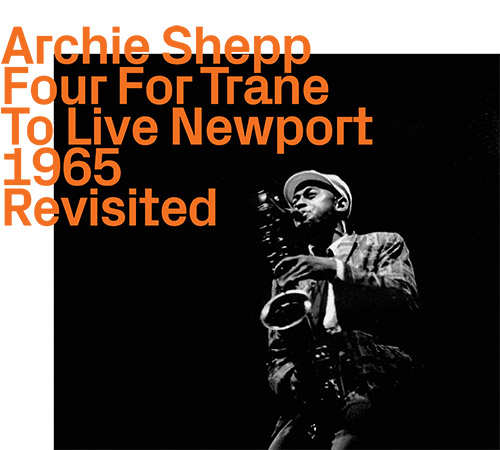





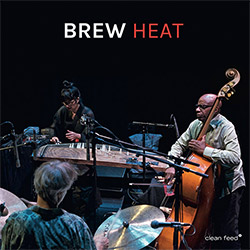
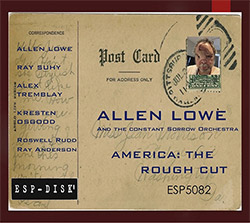





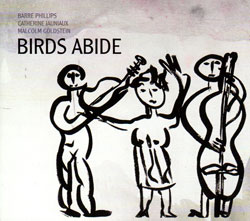
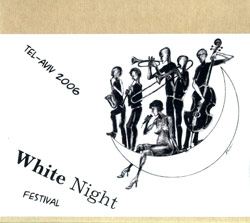
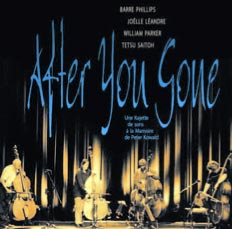
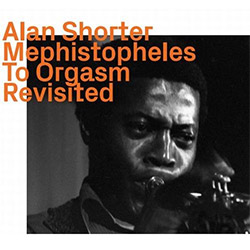

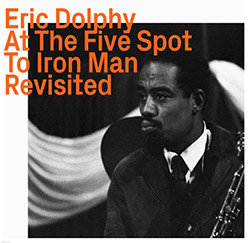
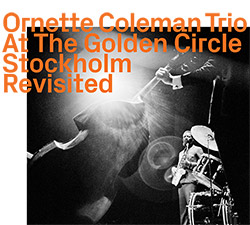

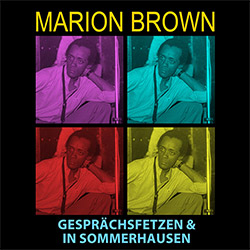

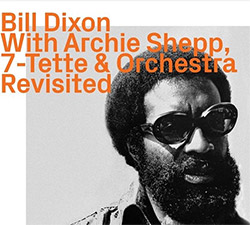

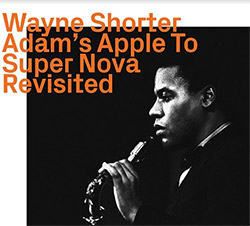
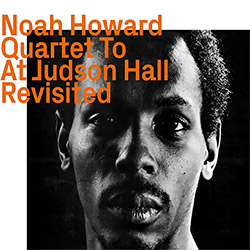










![Agnel, Sophie: Learning [VINYL]](https://www.teuthida.com/productImages/misc4/36841.jpg)

![Monaco, Amanda (w/ Michael Attias / Sean Conly / Satoshi Takeishi) : Deathblow [VINYL]](https://www.teuthida.com/productImages/misc4/36956.jpg)
![Frey, Jurg with ensemble]h[iatus: Je Laisse A La Nuit Son Poids D](https://www.teuthida.com/productImages/misc4/36988.jpg)
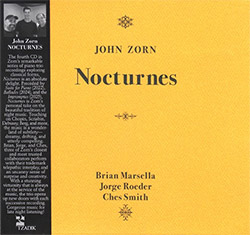
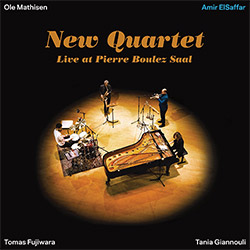
![ElSaffar, Amir / New Quartet : Live at Pierre Boulez Saal [VINYL]](https://www.teuthida.com/productImages/misc4/36830.jpg)
![Zorn, John: The Song of Songs [CD + CD BOOK]](https://www.teuthida.com/productImages/misc4/36923.jpg)

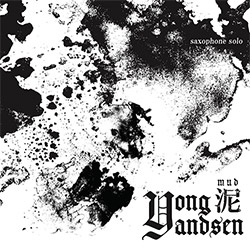


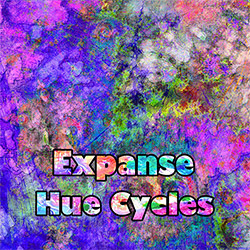
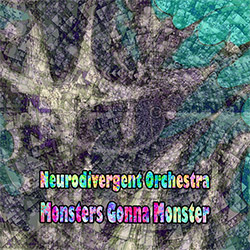


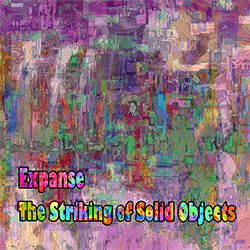
![Musicworks Magazine: #152 Fall 25 [MAGAZINE + CD]](https://www.teuthida.com/productImages/misc4/37004.jpg)





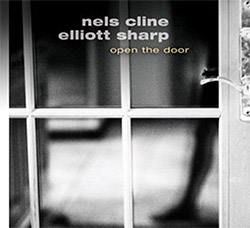
![[ahmed] (Thomas / Grip / Gerbal / Wright): Sama](https://www.teuthida.com/productImages/misc4/36976.jpg)

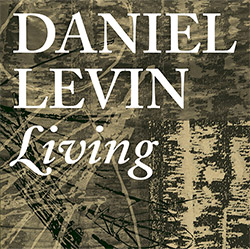
![Cleaver, Gerald / Brandon Lopez / Hprizm: In The Wilderness [COLOR VINYL]](https://www.teuthida.com/productImages/misc4/33060.jpg)
![McPhee, Joe : Defiant Jazz: a Joe McPhee Taster [VINYL]](https://www.teuthida.com/productImages/misc4/36859.jpg)
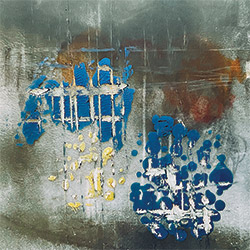
![Mateen, Sabir / Patrick Holmes / Federico Ughi : Survival Situation [LTD VINYL LP + DOWNLOAD]](https://www.teuthida.com/productImages/misc4/29891.jpg)
![Tucker, Dave / Pat Thomas / Thurston Moore / Mark Sanders: Educated Guess Vol. 1 [COLORED VINYL]](https://www.teuthida.com/productImages/misc4/30183.jpg)
![Sarian, Michael / Matthew Putman: A Lifeboat (Part I) [COLORED VINYL]](https://www.teuthida.com/productImages/misc4/30426.jpg)
![Carter, Daniel / Tobias Wilner / Djibril Toure / Federico Ughi: New York United Volume 2 [COLOR VINYL]](https://www.teuthida.com/productImages/misc4/30665.jpg)
![Mela, Francisco feat. Matthew Shipp / William Parker: Music Frees Our Souls, Vol. 1 [BLUE VINYL]](https://www.teuthida.com/productImages/misc4/30999.jpg)
![Heroes Are Gang Leaders: LeAutoRoiOgraphy [COLORED VINYL]](https://www.teuthida.com/productImages/misc4/32253.jpg)
![Carter, Daniel / Matthew Shipp / William Parker / Gerald Cleaver: Welcome Adventure! Vol. 2 [COLOR VINYL]](https://www.teuthida.com/productImages/misc4/32385.jpg)
![Carter, Daniel / Evan Strauss / 5-Track / Sheridan Riley: The Uproar In Bursts Of Sound And Silence [COLORED VINYL]](https://www.teuthida.com/productImages/misc4/32515.jpg)
![Ackerley, Jessica / Patrick Shiroishi / Chris Williams / Luke Stewart / Jason Nazary: SSWAN: Invisibility is an Unnatural Disaster [COLORED VINYL]](https://www.teuthida.com/productImages/misc4/32586.jpg)
![Mela, Francisco feat. Cooper-Moore / William Parker: Music Frees Our Souls, Vol. 2 [COLORED VINYL]](https://www.teuthida.com/productImages/misc4/32735.jpg)
![Amba, Zoh / William Parker / Francisco Mela: O Life, O Light Vol. 2 [COLOR VINYL]](https://www.teuthida.com/productImages/misc4/33059.jpg)
![Dikeman, John / Pat Thomas / John Edwards / Steve Noble: Volume 1 [COLORED VINYL]](https://www.teuthida.com/productImages/misc4/33099.jpg)
![Dikeman, John / Pat Thomas / John Edwards / Steve Noble: Volume 2 [COLOR VINYL]](https://www.teuthida.com/productImages/misc4/33184.jpg)
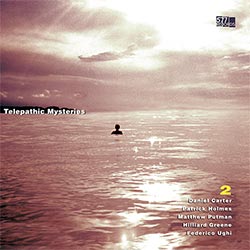
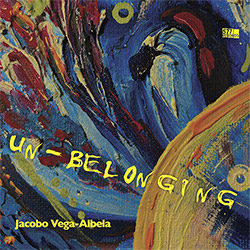

![Genthon, Anouck / Lionel Marchetti: Suite Blanche [2 CDs]](https://www.teuthida.com/productImages/misc4/36642.jpg)
![Toeplitz, Kasper T.: Erosions Programmees [CD + BOOKLET]](https://www.teuthida.com/productImages/misc4/36639.jpg)
![Gate, The : Amost Live [CASSETTE + MAGAZINE]](https://www.teuthida.com/productImages/misc4/36836.jpg)






![A Magic Whistle: The Solar Cell [VINYL]](https://www.teuthida.com/productImages/misc4/36658.jpg)

![McGee, Hal: Columbus Expedition [Cassette w/ Download]](https://www.teuthida.com/productImages/misc4/36650.jpg)


![Jaeger, Kassel: Fernweh [VINYL 2 LPs]](https://www.teuthida.com/productImages/misc4/36541.jpg)





![+DOG+: The Light Of Our Lives [2 CDs]](https://www.teuthida.com/productImages/misc4/36009.jpg)


![Eternities: Rides Again [CASSETTE]](https://www.teuthida.com/productImages/misc4/36247.jpg)

![Lopez, Francisco: Untitled (2021-2022) [2 CDs]](https://www.teuthida.com/productImages/misc4/36438.jpg)



![Frey, Jurg : Composer, Alone [3 CDs]](https://www.teuthida.com/productImages/misc4/36927.jpg)
![Pisaro-Liu, Michael: Within (2) / Appearance (2) [2 CDs]](https://www.teuthida.com/productImages/misc4/36831.jpg)










![Musicworks Magazine: #151 Summer 25 [MAGAZINE + CD]](https://www.teuthida.com/productImages/misc4/36559.jpg)

![Brown, Dan / Dan Reynolds: Live At The Grange Hall [unauthorized][CASSETTE]](https://www.teuthida.com/productImages/misc4/36245.jpg)



![Coultrain: Mundus [COLORED VINYL]](https://www.teuthida.com/productImages/misc4/33056.jpg)
![Hprizm: Signs Remixed [COLORED VINYL]](https://www.teuthida.com/productImages/misc4/30635.jpg)
![Halls Of the Machine: All Tribal Dignitaries [CASSETTE w/ DOWNLOAD]](https://www.teuthida.com/productImages/misc4/36134.jpg)



![Koenjihyakkei: Live at Club Goodman [2 CDs]](https://www.teuthida.com/productImages/misc4/36111.jpg)

![Sorry For Laughing (G. Whitlow / M. Bates / Dave-Id / E. Ka-Spel): Rain Flowers [2 CDS]](https://www.teuthida.com/productImages/misc4/35985.jpg)

![Rolando, Tommaso / Andy Moor : Biscotti [CASSETTE w/ DOWNLOADS]](https://www.teuthida.com/productImages/misc4/36106.jpg)


![Electric Bird Noise / Derek Roddy: 8-10-22 [CD EP]](https://www.teuthida.com/productImages/misc4/35970.jpg)








![Elephant9 : Mythical River [VINYL]](https://www.teuthida.com/productImages/misc4/34624.jpg)



![Elephant9 with Terje Rypdal: Catching Fire [VINYL 2 LPs]](https://www.teuthida.com/productImages/misc4/35355.jpg)
![Deerlady (Obomsawin, Mali / Magdalena Abrego): Greatest Hits [VINYL]](https://www.teuthida.com/productImages/misc4/34876.jpg)
![Coley, Byron: Dating Tips for Touring Bands [VINYL]](https://www.teuthida.com/productImages/misc4/17906.jpg)

![Lost Kisses: My Life is Sad & Funny [DVD]](https://www.teuthida.com/productImages/misc4/lostKissesDVD.jpg)